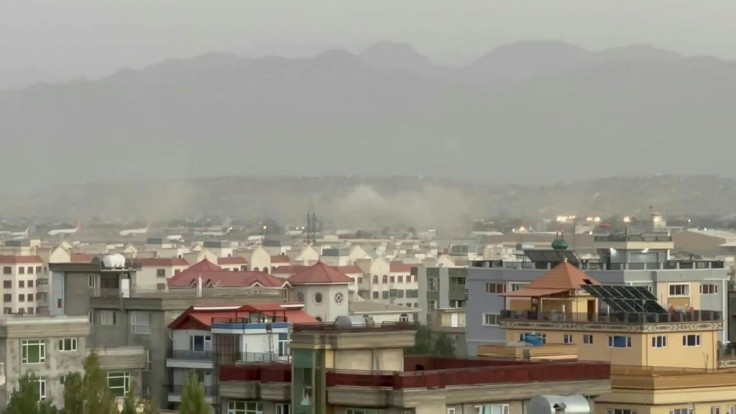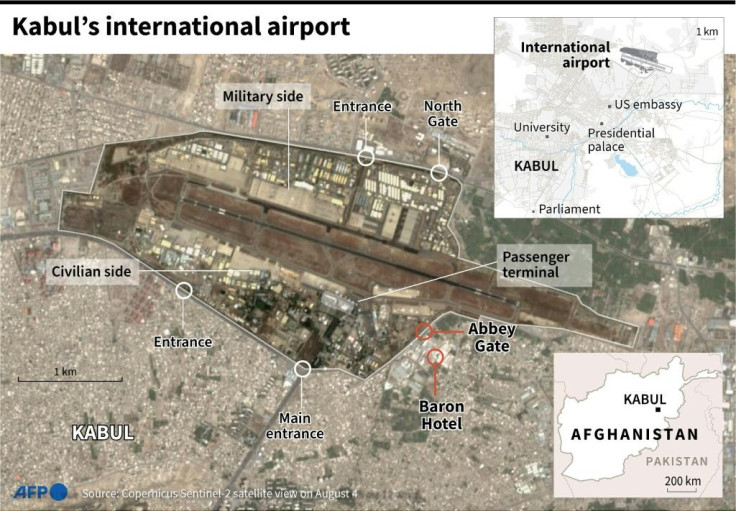Limits Of US Power: ‘Wanted’ Terrorist With $5M Reward On His Head Runs Kabul Security

Kabul's new security chief appointment has raised concerns about the safety of American citizens and vulnerable Afghans stuck in the capital as Taliban picked a designated terrorist for the job.
In a recent interview with Al Jazeera, Khalil Ur-Rahman Haqqani, who proclaimed himself as the head of Kabul security for the Taliban, said the militant group is working to restore order in the area. Haqqani, who carries a $5 million bounty from the U.S. Treasury Department since February 2011, said “all Afghans” should feel safe under Islamic Emirate rule.
“If we can defeat superpowers, surely we can provide safety to the Afghan people,” he said.
Haqqani, who is also included in the United Nations terror list, has assured the safety of Afghans under Taliban control, but a suicide-bombing attack outside the gates of the Kabul airport Thursday added to the panic. The bombing killed at least 13 members of the U.S. services and a dozen Afghans.
Taliban officials admitted to NBC News that “releasing thousands of prisoners, among them hardcore Islamic State commanders, master trainers and bomb-makers” was a massive blunder on their part as the security situation has become more unsafe.
The Haqqani Network has long been acquainted with the Al-Qaeda and has also forged close ties with other foreign jihadist groups. With Haqqani as the Kabul chief of security, concerns are on the rise over the possibility of the Al-Qaeda being sheltered once more by Afghanistan, VOA News reported.
Taliban leaders agreed during last year’s diplomatic talks with U.S. officials that it will “not allow any of its members, other individuals or groups, including Al-Qaeda, to use the soil of Afghanistan to threaten the security of the United States and its allies.”
Senior adviser at Counter Extremism Project, Ivor Roberts, said Al-Qaeda is “deeply embedded” with the Taliban. “I don’t think they will ever cut ties with Al-Qaeda,” Roberts, a retired British diplomat, noted.
Taliban has yet to be designated by the U.S. government as a terrorist organization. However, the Haqqani Network has been linked to hostage-taking activities against Westerners. U.S. officials said the network currently has at least one U.S. citizen in captivity, the Wall Street Journal reported.
Retired Lt. Gen. Michael K. Nagata said the Haqqani Network is “the single most impressive nonstate militant group” he has ever seen besides the ISIS during its first two years in power.
While Taliban has signed a peace deal with the Trump administration, the recent bombing in Kabul as well as the group’s refusal to extend foreign evacuations out of Afghanistan past the Aug. 31 deadline has increase skepticism over the Taliban’s pledges. Recent developments have also implied the United States’ limited power in a country that could be overtaken by terrorism once U.S. military fully departs at the end of the month.

Map showing the location of Kabul's international airport with its entry points, and where explosions were recorded on Thursday. Photo: AFP / Valentina BRESCHI





















